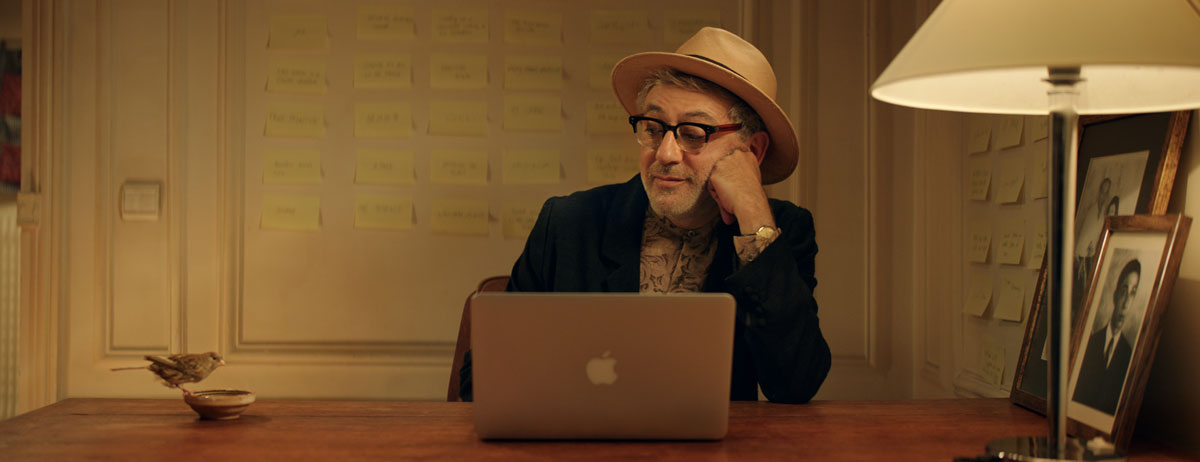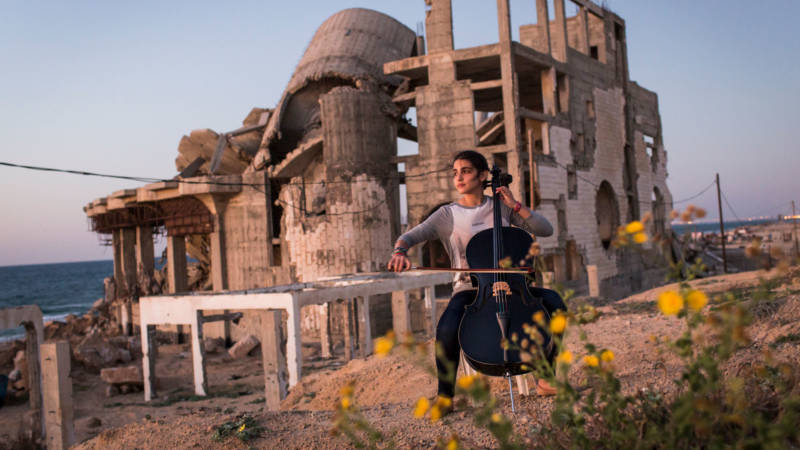Gaza, Irish doc filmmaker Garry Keane and photojournalist Andrew McConnell remind us at the beginning of their immersive, textured Gaza, is only 25 miles long and seven miles wide. Its borders with Egypt and Israel are closed, while the expansive Mediterranean merely offers the illusions of escape and freedom. For the last decade-plus, Gaza’s two million inhabitants have been ruled by Hamas, so women steadily have less latitude and liberty.
Gaza, which is Ireland’s official submission for the Academy Award for International Feature Film (formerly known as Foreign Language Film), screens Oct. 16 and 19 in the Arab Film Festival (Oct. 11–20 at the Castro and Roxie in San Francisco and the New Parkway in Oakland). The filmmakers dispense with a narrator so as to amplify the voices of a range of everyday people—a cab driver, a cello-studying teenager, a child fisherman, a woman who produced the first fashion show in Gaza. The documentary teems with activity, yet the overwhelming vibe is inertia and frustration. “There is a barrier that stands between the people of Gaza and life itself,” declares a theater director with six college-educated children, none of whom found jobs after graduation.

The dryly comic cinema laureate of Palestinian malaise, Elia Suleiman, has built a reasonably successful, undeniably bittersweet career since 1996’s Chronicle of a Disappearance satirizing and lamenting (in equal measure) the painful quality of life under Israeli occupation. It Must Be Heaven, his first feature since The Time That Remains one long decade ago, opens the Arab Film Festival with a poignant whiff of dislocation, alienation and resignation.
Suleiman’s films aren’t narratives but rather collections of vignettes and sight gags that coalesce into a worldview. The now-gray-bearded filmmaker is the lone recurring character, a silent (except for precisely two lines of dialogue) and unsmiling observer of the absurdity of daily life in Nazareth, Paris and New York.
Clad in the same straw hat, slate jacket and jeans in every scene and setting, Suleiman is always an outsider, even in Palestine. That feeling is underscored by people interacting with each other as if they were aliens unversed in normal human behavior. The key consequence is that the usual Suleiman empathy and warmth, typically expressed via a raised eyebrow, is missing.


